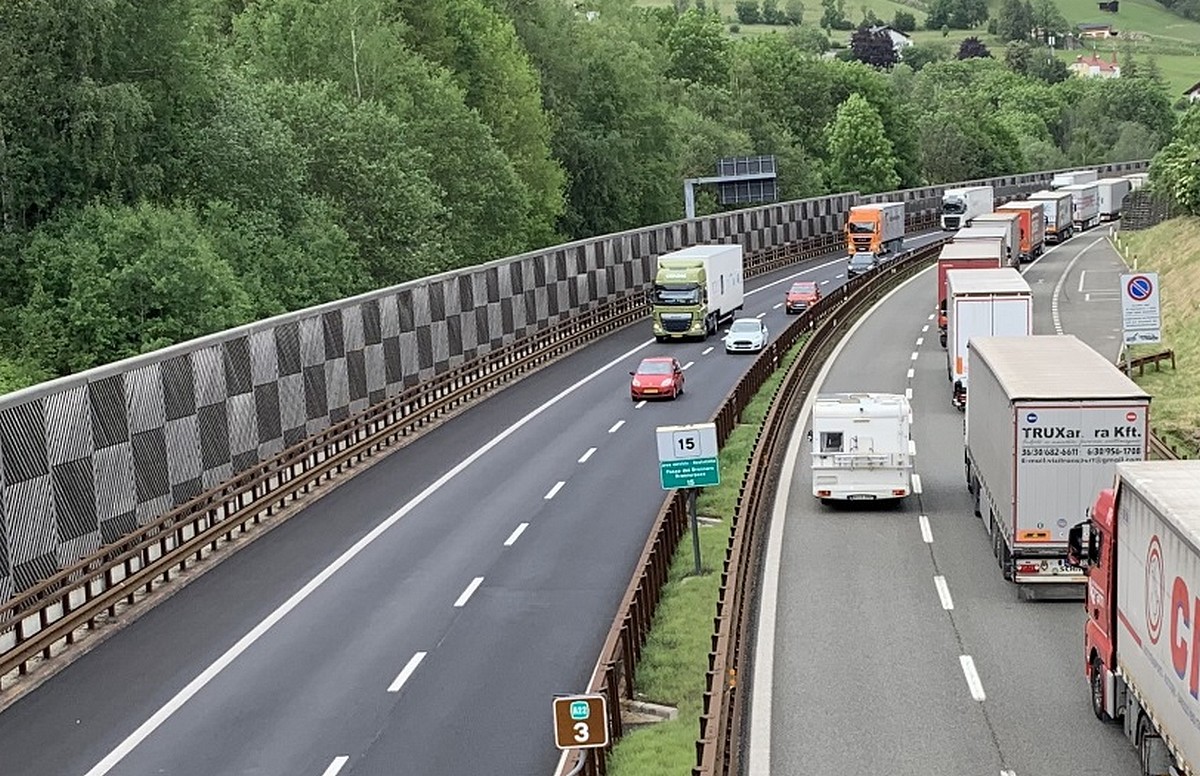The European Commission has decided to support Italy’s legal action against Austria’s truck transit measures along the Brenner corridor. The Italian government lodged the case with the European Court of Justice (ECJ) on 30 July, arguing that Austria’s truck transit restrictions violate the EU’s fundamental principle of the free movement of goods.
The lawsuit specifically targets measures such as sectoral driving bans, night driving bans, winter driving bans, and block clearances implemented by Austria, which are deemed incompatible with EU law. The European Commission’s decision to intervene as an intervener signals its commitment to uphold EU law and protect the internal market.
The German Association (BGL) has been vocal about the adverse effects of Austria’s measures on the economy, particularly the medium-sized transport industry, truck drivers, and residents of the Bavarian Inn Valley. The BGL has repeatedly called on the EU Commission to act against Austria’s unilateral restrictions.
In a statement, BGL board spokesman Prof. Dr. Dirk Engelhardt welcomed the EU Commission’s intervention:
“The BGL expressly welcomes the EU Commission’s move to intervene as an intervener. It is a long overdue signal that strengthening the internal market will once again play a greater role in the new Commission. The EU Commission is thus finally living up to its responsibility as guardian of the treaties and defender of the EU’s fundamental freedoms. Unfortunately, Germany has so far failed to join Italy’s lawsuit and to take a clear position on this important issue.”
Impact of Brenner traffic restrictions
A recent study by the Italian Chamber of Commerce in Bolzano reveals the severe economic impact of additional traffic restrictions on the Lueg Bridge, set to begin on January 1, 2025. The study, conducted by Uniontrasporti, outlines two scenarios that forecast substantial financial losses.
Scenario A assumes a 50% capacity reduction, maintaining one lane in each direction and two lanes for lighter traffic during peak times. This scenario predicts that 90% of commercial traffic will continue using the Brenner motorway, with the remaining 10% diverting to alternate passes. The estimated cost of increased transit times is €174 million per year, with freight transport accounting for €93.5 million.
Scenario B presents a more drastic measure, simulating a total closure of the route and banning heavy vehicle traffic on the B182. The projected cost of rerouting and increased transit times under this scenario rises to €640 million annually, with €327.3 million directly impacting freight transport.
Criticism from Italian and German hauliers
To address these concerns, the Italian authorities have appealed for capacity assurances along the Brenner corridor, including lifting night-time truck bans and maintaining year-round two-lane traffic. They also advocate for enhanced rail transport options to mitigate the impact of the restrictions.
Additionally, the hauliers argue that these measures will severely disrupt their operations, increase costs, and undermine Italy’s competitiveness in the export market. Italian hauliers, in particular, have voiced concerns that the restrictions will disproportionately affect their ability to transport goods efficiently, resulting in higher costs for manufacturers who rely on road transport.
Earlier appeals by transport associations and politicians from Italy and Germany to temporarily ease restrictions on truck traffic have gone unanswered. In July, European hauliers, including the German Federal Association for Goods Transport, Logistics and Utilisation (BGL), joined forces with other European trade associations and the International Road Transport Union (IRU) to urge the European Commission to take immediate action to ensure the free movement of goods on this critical European route.











